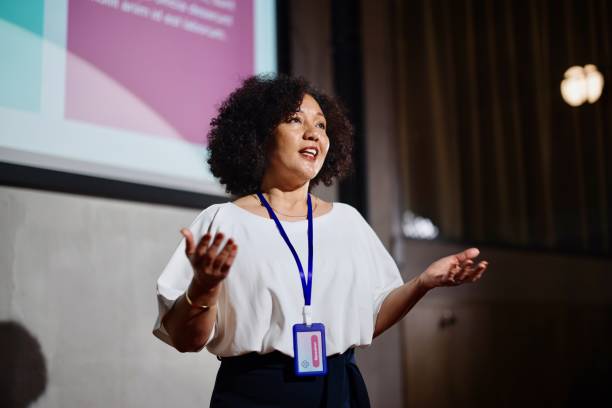Communication is a vital skill in the workplace, influencing how effectively we collaborate, build relationships, and achieve goals. Mastering communication skills can lead to better teamwork, reduced conflicts, and increased productivity. This guide will offer practical tips and tricks to help you develop good communication skills, from verbal to non-verbal techniques, to make your workplace interactions more impactful.
Why are communication skills important?
Effective communication is the foundation of workplace success. It ensures clarity, minimises misunderstandings, and fosters trust. Strong communication skills are essential for navigating team dynamics, presenting ideas, and handling challenging conversations. Good communication doesn’t just help your career — it also enhances your interpersonal relationships and emotional intelligence.
If you’re aiming to move up in your career, understanding how communication fits into career development is key to unlocking long-term success.
How to improve communication skills: Practical tips for success
Good communication skills are essential in every area of life, from fostering strong relationships to excelling in the workplace. Whether you’re navigating team meetings, giving presentations, or managing client relationships, effective communication can set you apart. In this guide, we’ll explore actionable tips to help you improve communication skills and stand out professionally.
1. Practice active listening
Active listening is one of the foundational communication skills. It involves fully engaging with the speaker, understanding their message, and responding thoughtfully.
Key techniques:
- Maintain eye contact to demonstrate attentiveness.
- Avoid interrupting the speaker; let them complete their thoughts.
- Paraphrase their message to ensure clarity and show understanding.
By mastering active listening, you can enhance workplace relationships and improve how others perceive you, fostering better collaboration and mutual respect.
2. Focus on non-verbal communication skills
Non-verbal communication skills, such as body language and facial expressions, often speak louder than words. Being mindful of these cues can strengthen your message and help you connect with others.
Tips for Improvement:
- Use open body language; avoid crossing your arms to appear more approachable.
- Smile to convey friendliness and warmth.
- Pay attention to your tone of voice and maintain good posture.
Effective non-verbal communication skills can reinforce your spoken words and help build rapport with colleagues and clients alike.
3. Be clear and concise
Clear communication is crucial for ensuring your message is understood. Whether you’re writing emails, leading meetings, or giving feedback, simplicity and structure are key.
Strategies for effective communication:
- Use straightforward language and avoid technical jargon unless necessary.
- Organise your thoughts before speaking to ensure coherence.
- Tailor your message to suit your audience’s needs and expectations.
Clarity is especially important during performance reviews and team discussions, where misunderstandings can have a significant impact.
4. Develop emotional intelligence
Emotional intelligence (EI) is a critical interpersonal skill that enhances your ability to understand and manage emotions — both your own and those of others.
How to build emotional intelligence:
- Practice empathy by considering others’ perspectives.
- Learn to manage stress effectively to prevent miscommunication.
- Recognise your emotional triggers and respond thoughtfully.
Strong emotional intelligence improves interpersonal interactions and strengthens relationships, making it an indispensable communication skill. These skills are also transferable assets that can benefit your career transformation.
5. Master different communication methods
In today’s workplace, understanding and adapting to various communication methods is essential. From emails to video calls, each method requires a unique approach.
Best practices for different communication methods:
- Emails: Keep messages professional, concise, and free of errors.
- Video calls: Ensure a stable internet connection and maintain eye contact through the camera.
- In person: Pay attention to non-verbal cues and encourage open dialogue.
By mastering these communication methods, you can handle any professional scenario with confidence and effectiveness.
6. Practice public speaking
Public speaking is a valuable way to develop verbal communication skills, boost confidence, and articulate ideas effectively in front of a group.
Ways to practice:
- Join a public speaking club to practice in a supportive environment.
- Rehearse presentations with friends or colleagues and seek constructive feedback.
- Record yourself to identify areas for improvement in tone, pacing, and delivery.
Good public speaking skills enhance your ability to lead meetings, deliver client presentations, and engage audiences at professional events.
7. Seek and embrace feedback
Constructive feedback is an essential tool for improving communication skills. It allows you to pinpoint areas for growth and refine your approach over time.
How to use feedback effectively:
- Ask colleagues for their honest opinions about your communication style.
- Reflect on feedback and implement changes in future interactions.
- Use critiques to prepare for challenging conversations and improve your performance.
Feedback is invaluable for enhancing your communication skills and plays a crucial role in preparing for a variety of interview types. By understanding and applying constructive feedback, you can adapt to different scenarios and excel in diverse interview formats
Common barriers to effective communication (And how to overcome them)
Effective communication is essential for building strong relationships and achieving success in the workplace. However, several barriers can hinder this process. Here’s a closer look at common communication obstacles and how to overcome them:
Barrier 1: Misunderstandings
Misunderstandings often arise when messages aren’t clearly conveyed or interpreted.
Solution:
- Summarise key points during conversations to ensure clarity.
- Encourage questions and provide examples to eliminate ambiguity.
Clear communication ensures everyone is on the same page, reducing the risk of errors or confusion.
Barrier 2: Lack of confidence
A lack of confidence can make it challenging to express ideas effectively or contribute to discussions.
Solution:
- Prepare in advance for important conversations by organising your thoughts.
- Practice regularly, whether through rehearsals, role-playing, or public speaking.
As your confidence grows, your communication skills will naturally improve, making it easier to articulate your ideas clearly.
Barrier 3: Overloading information
Too much information at once can overwhelm the listener, leading to disengagement or confusion.
Solution:
- Break down complex messages into smaller, manageable parts.
- Use structured formats like bullet points or step-by-step instructions to simplify information.
Delivering concise and well-organised messages helps your audience stay engaged and absorb the content more effectively.
By identifying and addressing these common barriers, you can develop better communication skills that foster understanding, strengthen relationships, and create workplace harmony. Small improvements, such as practicing clarity, building confidence, and simplifying messages, can have a significant impact on your professional and personal interactions.
Take the first step to improve your communication skills with Recruit Ireland
Good communication skills are more than just an asset—they are a necessity for personal and professional success. From active listening to mastering verbal and non-verbal communication methods, these skills enable you to build trust, foster teamwork, and achieve your goals.
By honing active listening, emotional intelligence, and clarity, you can build stronger workplace relationships and boost your career prospects. For more expert tips and career guidance, visit the Recruit Ireland Advice Centre or explore new job opportunities on Recruit Ireland’s Jobs Page. Start mastering effective communication today to transform your professional and personal life.










